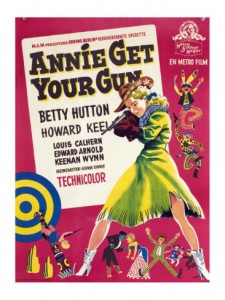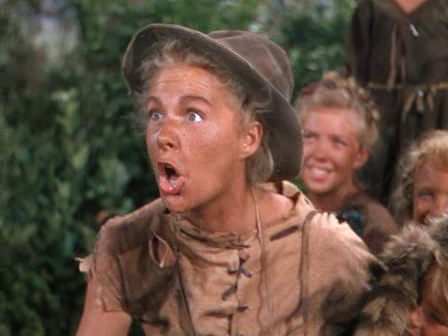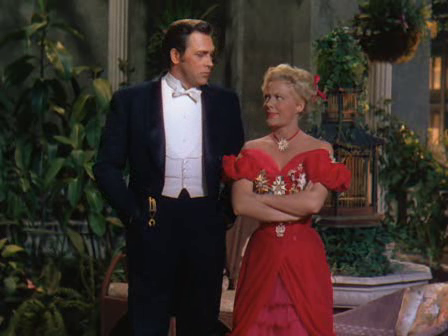Annie Get Your Gun (1950)
[Note: The following review is of a non-Peary title; click here to read more.]
“A man never trifles with gals who carry rifles — oh, you can’t get a man with a gun.”
|
Synopsis: |
|
Genres, Themes, Actors, and Directors:
Review: This is not necessarily the fault of Hutton, who invests her character with as much energetic enthusiasm as she gave to just about every other role she played; I believe the fault lies primarily with the narrative, which portrays tomboyish Annie as instantly infatuated with Keel’s “Frank Butler” (presumably for comedic value). Her slack-jawed reaction upon viewing him (repeated several times) simply comes across as cartoonish. Meanwhile, the subplot involving Annie’s “adoption” as the honorary daughter of Chief Sitting Bull (J. Carrol Naish) is not only silly, but leads to a number of downright offensive scenes with Native Americans. (Yes, I know, it’s all part of how things were perceived during that era — but that doesn’t stop it from being utterly unappealing.) In sum, while Hutton’s performance is worth a look, and the film itself was one of the most popular musicals of its time, this one is simply recommended rather than Must See. Note: Check out Wikipedia’s article for more information about the film’s troubled production history; it originally starred Judy Garland, who became too ill to continue, and was ultimately fired by MGM. Redeeming Qualities and Moments: Must See? Links: |


